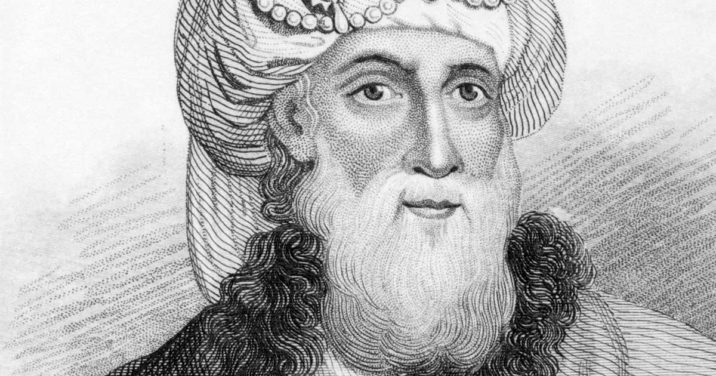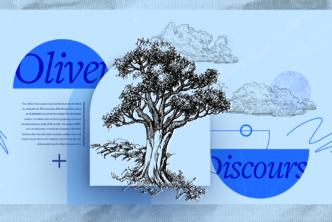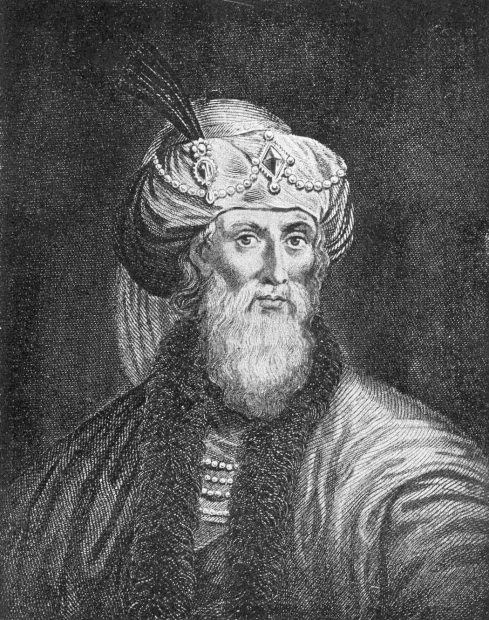
Josephus is the common name for the famous Jewish historian and author, Titus Flavius Josephus, whose major works were written during the Roman occupation and encompass the destruction of Jerusalem.
The writings of Josephus are an important witness to the events and people of the first century as chronicled in the New Testament. They also serve as a significant example of what biblical interpretation looked like during the Second Temple period and illustrate how the Old Testament was received. The below will answer these questions:
- Who was Josephus?
- Why is Josephus important for biblical studies?
- What did Josephus write?
- Where can I learn more about Josephus?
Who Was Josephus?
Titus Flavius Josephus was a first-century Jewish historian, military general, and ambassador for Rome. Josephus was a highly educated aristocrat, born into a wealthy family with strong ties to the Jewish priesthood. His place within the Jewish social and economic elite is evident in his role in negotiating with Emperor Nero for the release of 12 Jewish priests.
Josephus served as a military commander during critical periods of Jewish resistance against Roman occupation in the first century. He was appointed military governor of Galilee during the first Jewish-Roman war, during which he was taken captive after a failed collective suicide attempt. He and 40 of his men were trapped by Roman forces in 67 AD—and Josephus and one other man were captured. He was later released by Vespasian in 69 AD after correctly predicting the latter would become emperor.
In 71 AD, Josephus went to Rome under the employ of Titus and there enjoyed the privileges of both Roman citizenship and patronage. Titus bestowed upon him land and a pension in conquered Judea. During this time, Josephus wrote his known works under the patronage of the Flavian dynasty.
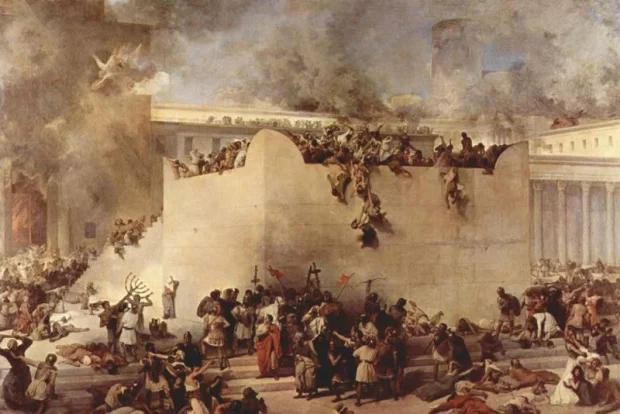
Why Is Josephus Important for Biblical Studies?
The writings of Josephus are considered a primary source for understanding the world in which Jesus lived, died, and rose again because they come from the period in which Christ walked the earth. As such, they include historical information concurrent with the testimony of the New Testament.
First, Josephus provides first-hand accounts of the various Jewish sects who were active at the time of Jesus. He is considered by many scholars to have been a Pharisee, and he famously ridiculed the Sadducees as corrupt elitists (AJ 17.42). Josephus’ writings include details about these groups that both affirm the gospel witness and also provide additional information about their beliefs and perceptions.
Second, Josephus offers a historical record in which Jesus Christ, James the brother of Jesus, and John the Baptist are mentioned by name. His reference to Jesus in Antiquities of the Jews is referred to as the Testimonium Flavianum:
About this time there lived Jesus, a wise man, if indeed one ought to call him a man. For he was one who performed surprising deeds and was a teacher of such people as accept the truth gladly. He won over many Jews and many of the Greeks. He was the Christ. And when, upon the accusation of the principal men among us, Pilate had condemned him to a cross, those who had first come to love him did not cease. He appeared to them, spending a third day restored to life, for the prophets of God had foretold these things and a thousand other marvels about him. And the tribe of the Christians, so called after him, has still to this day not disappeared. (AJ 18.3.3)
The reference to James is also found in Antiquities of the Jews:
Festus was now dead, and Albinus was but upon the road; so he assembled the sanhedrin of judges, and brought before them the brother of Jesus, who was called Christ, whose name was James, and some others; and when he had formed an accusation against them as breakers of the law, he delivered them to be stoned. (AJ 20.9.1)
Finally, Josephus mentions John the Baptist, also in Antiquities of the Jews:
Now some of the Jews thought that the destruction of Herod’s army came from God, and that very justly, as a punishment of what he did against John, that was called the Baptist: for Herod slew him, who was a good man… Herod, who feared lest the great influence John had over the people might put it into his power and inclination to raise a rebellion… Accordingly he was sent a prisoner, out of Herod’s suspicious temper, to Macherus, the castle I mentioned before, and was put there to death. (AJ 18.5.2)
Despite various arguments against their authenticity (primarily directed against the first reference to Jesus), this threefold testimony to persons and events found in the gospel narratives is significant because, at a minimum, it confirms a man named Jesus existed. Jesus’ notoriety was such that Josephus felt it was worth recording in his people’s history. Josephus’ confirmation of the death—and influence—of John the Baptist is further testimony to the historical validity and context of the Synoptic Gospels in which the account is found (cf. Matt 14:1–12; Mark 6:14–27; Luke 9:9).
Third, in Josephus, we find one of the most important and elaborate examples of how Jewish interpreters engaged with the Old Testament in the first century AD. At that time, the Jewish people already had a long interpretive tradition that used the Old Testament as a primary source text, either to craft fascinating new narratives about legendary Jewish heroes (1–4 Maccabees, Wisdom of Solomon) or to colorfully rewrite the origins of the Jewish people (i.e., Jubilees, Pseudo-Philo). Josephus’ History of the Jews is an excellent example of a “rewritten Bible” in which he refashioned biblical characters to make them more relatable to his readers.
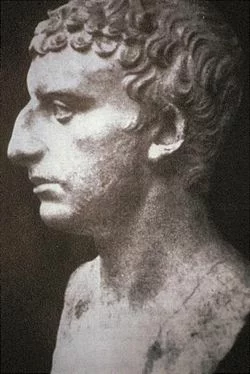
The Writings of Josephus
There are four primary resources for reading Josephus:
- The Works of Josephus: Complete and Unabridged (Hendrickson, 1980; originally published in 1737) by William Whiston. Whiston’s translation was not based on the best manuscripts, and the English prose can feel awkward today.
- Flavii Josephi opera (Berlin: 1885–1895) by Benedict Niese
Flavii Josephi opera (Berlin: 1885–1895) is the critical edition upon which the famous Loeb series was based. This edition in Greek with apparatus is available in Logos, morphologically tagged and cross-referenced. The Loeb series uses Niese’s edition of the Greek. - The Loeb edition of Josephus
The Loeb edition of Josephus is a reputable translation that includes both Greek and English on facing pages in the standard Loeb format, and was translated through the combined efforts of such eminent scholars as H. St. J. Thackeray, Ralph Marcus, Allen Wikgren and L. H. Feldman. The complete Loeb volumes are not yet available in electronic form, although Logos offers an eight-volume set including Against Apion and The Jewish War. - Flavius Josephus: Translation and Commentary by Steve Mason, ed.
Flavius Josephus: Translation and Commentary is a world-class critical commentary project under the auspices of Brill. The completed translations now supersede the Loeb editions, and these commentaries should be foremost in any serious study of Josephus. Volumes currently in publication include (some of which are available in Logos):- Judean War 2, Vol. 1b. Translated by Steve Mason. Leiden: Brill, 2007.
- Judean Antiquities 1–4. Translated by Louis H. Feldman. Leiden: Brill, 2000.
- Judean Antiquities 5–7. Translated by Christopher T. Begg. Leiden: Brill, 2005.
- Judean Antiquities 8–10. Translated by Christopher T. Begg and Paul Spilsbury. Leiden: Brill, 2005.
- Judean Antiquities 15. Translated by J. W. van Henten. Leiden: Brill, 2014.
- Life of Josephus. Translated by Steve Mason. Leiden: Brill, 2001.
- Against Apion. Translated by John M. G. Barclay. Leiden: Brill, 2007.
The completed volumes in the Brill series are also available online.
Additional Resources
Video lectures
Josephus: The Man and the Myths, Part 1 | Part 2
Professor John Barclay is a leading scholar in New Testament and Second Temple Judaism and a recognized authority on Josephus. He is the author of Against Apion (Leiden: Brill, 2007) in the Brill commentary series on Josephus. In this two-part lecture series, he discusses the legendary Josephus of history.
Who Was Josephus?
Professor Helen Bond is a world-renowned scholar of Christian Origins. She presents a concise biography of Josephus in this video produced by SBL’s “Bible Odyssey” initiative
Who Was Josephus? Jewish Biography as History
Dr. Henry Abrahamson is Dean of Lander College of Arts and Sciences, Touro College, in New York. He specializes in Jewish history and thought and presents a good overview of Josephus in this extended lecture.
Josephus and Jesus: a Christian forgery?
Dr. Chris Forbes is Senior Lecturer of Ancient History at Macquarie University in Sydney. He is an expert in New Testament history, including the intersection of Greco-Roman culture and the rise of Christianity in the ancient world. In this interview, Dr Forbes addresses the claim of forgery concerning the first reference to Jesus in Antiquities.
Other resources
The Antiquities of the Jews, Gutenberg Project
A free online version of Antiquities.
Full Audio of Antiquities of the Jews
This four-part YouTube series allows you to listen to the entire text of Josephus’s Antiquities.
Logos Resources
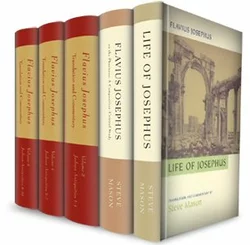
Flavius Josephus Collection (Brill)
The five-volume Flavius Josephus Collection (Brill) contains one compositional-critical study by Steve Mason and four of the world-class Translation and Commentary volumes by Brill covering The Life of Josephus and Books 1–10 of Judean Antiquities. This collection has been reviewed by Ryan Nelson at Faithlife:
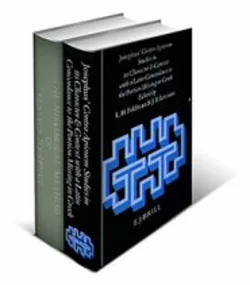
Brill Josephus and History Collection
The two-volume Brill Josephus and History Collection includes the first comprehensive study of Josephus’ historical method and the only complete Latin concordance of the missing Greek portions of Contra Apion. Leading Josephus scholars Louis H. Feldman and John R. Levison contributed to this collection.
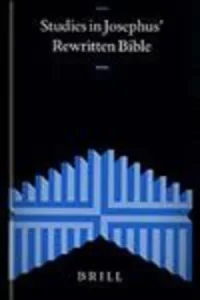
Studies in Josephus’ Rewritten Bible
This is a collection of 30 years of studies by renowned scholar Louis H. Feldman on numerous topics of interest in Antiquities of the Jews. In this collection, Feldman focuses on how Josephus resolved contradictions and theological perspectives evident in the Antiquities (his so-called “rewritten Bible”). The essays also consider instances where Josephus radically changes the presentation of particular biblical characters such as Ahab, Hezekiah, and Zedekiah.
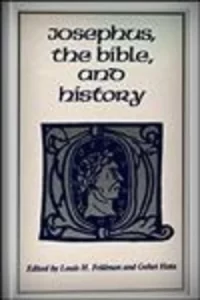
Josephus, the Bible, and History
A collection of essays by various scholars examining Josephus’ relationship to Scripture and significant events in ancient history. The collection is edited by leading Josephus scholars Louis H. Feldman and Gohei Hata.
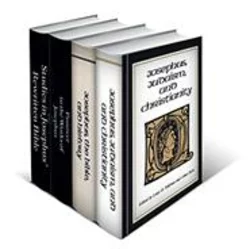
Brill Josephus and the Bible Collection
The four-volume includes a comprehensive study of the Jewish Passover in Josephus, numerous essays by leading scholars on the issue of Josephus’ use of the Old Testament, and comprehensive indices for Old Testament references in Josephus’s writings.
Logos Courses
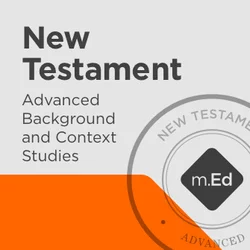
New Testament: Advanced Background and Context Studies Certificate Program
This course includes numerous sections discussing the importance of Josephus to the NT writings, including references to Pilate (Craig Evans), the resurrection of Jesus (Michael Licona), and the witness of Antiquities to the NT (Craig Evans). These courses are also available in the seven-course The Gospels and History Bundle.
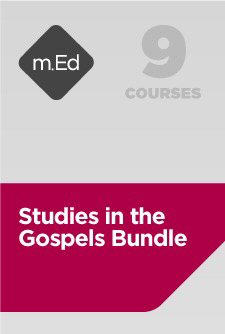
Studies in the Gospels Bundle
A series of studies by world-renowned scholars that focuses on Jesus’ life and ministry as presented in the four Gospels. The bundle includes Craig Evans’ course, The World of Jesus and the Gospels, which includes a section on Searching the Writings of Josephus for Mentions of Christ.
NT202 A Survey of Jewish History and Literature from the Second Temple Period with Joel Willitts
In NT202 A Survey of Jewish History and Literature from the Second Temple Period, Joel Willitts surveys a vast array of Second Temple literature, from the Old Testament Apocrypha to the writings of Philo and Josephus.
NT307 Archaeology and the New Testament with Craig Evans
NT307 Archaeology and the New Testament includes a lesson on Finding Pilate in the Writings of Josephus and Philo.
NT313 Jesus and the Witness of the Outsiders with Craig Evans
NT313 Jesus and the Witness of the Outsiders includes sections on Josephus’ Jewish Antiquities and Translations of Josephus and Rabbinic Literature.
CS151 Philosophy of History with Michael Licona
CS151 Philosophy of History includes a lesson dedicated to Josephus.

